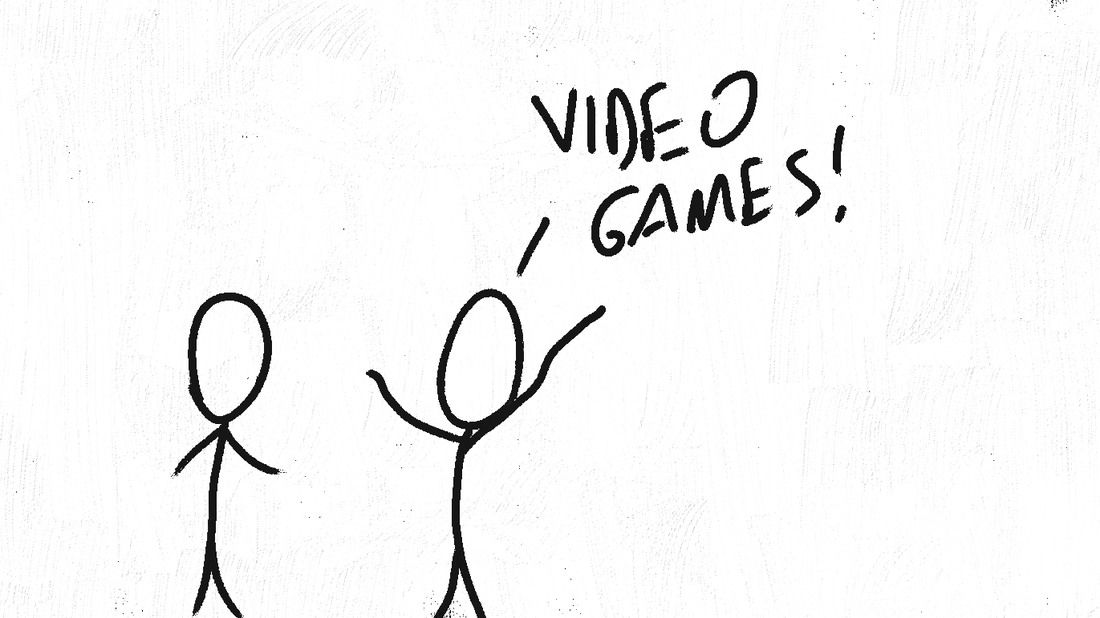|
Experiencing life is always the number one priority, for anyone, anywhere. At least it should be, because within the tiny bit of time we have, that's the only thing we can do that transforms us, rather than others. And when we're done experiencing life (it takes only a second if you have a boring life like mine), what is there to do other than experiencing other things that other people have prepared for you to experience - namely art? These are my thoughts on life. I have always been a part of the minority of game enthusiasts that think there is more than just a visceral feeling of excitement to games - and not just in a chess-y, puzzle-y, or interactive fiction-y way. I mean, the distinctive feature of games is that it's interactive multimedia, and there has to be some sort of experience to such a thing, isn't there? And yes, not only there is in fact an experience in there, but we already know it and love it, sometimes without saying it outright: When you think about videogames as a medium and disregard the obvious connotations that come with the name (video and game), the works that have been artistically lauded as the "pinnacle of gaming", the "citizen kane of gaming" or at the very least recognized as a great leap forward all contain much more than just gamey-game stuff. Half Life has the narrative firmly locked with the game. Bioshock has elements that support and reflect the setting and the story. Spec Ops: The Line puts you inside the character to the extent you let it. Brothers: Two Sons solves the companion problem by making you companion to yourself, effectively actualizing the support and affection between two brothers via gameplay. Papers, Please almost forcibly immerses you into experiencing the game as your avatar rather than through them using a combination of clever mechanics, scoring system, a silent dynamic of morality and efficient narrative. The Stanley Parable makes interactive narrative into something you can directly play with - not just explore. Other games also have specific parts that do this incredibly well, like the ending of Braid, the hospital stage in Hotline Miami; or various features like the fact that you have nothing to fight with the monster in Amnesia, that you can kill even the most crucial NPCs in Skyrim, or that you can talk to (or try to talk to) creatures in Planescape: Torment, rather than being restricted to attack them or avoid them. These things, and many more that I've forgotten to mention or don't even know about, are not particularly gamey things. Sure, you can define some in mechanical terms, and even make a game of it, but that's not exactly what's entertaining or satisfactory about them. For example, a constrained dialogue tree like the ones in "modern" RPGs is missing the point. It offers no possibility of interaction with the narrative and/or other characters, no satisfaction of curiosity, no social exploration. All it's good for is exposition (one of the worst kinds of narrative for interactive medium) and a blunt illusion of choice at best, therefore leading the player to a stilted gameplay where they either try hard to keep the suspension of disbelief or adopt the most beneficial behavior for them through a number of badly written lines, virtually min-maxing the conversation. You shouldn't be min-maxing a conversation. And yet, we have to make do with morality-enhanced dialogue trees and whatnot just to tick a box that says PROVIDES CHOICE FOR THE PLAYER in the administrative department's wishlist, because "if you provide choice for the player, you sell well".
The medium of videogames, as it stands right now, has the capability of providing an experience that you otherwise cannot have with any other medium. And the fact that any game that has even an inkling of this is praised for its non-gamey features shows us, I think, that the focus on gameplay and balance etc is not always justified, and that our favorite pastime, digital interactive entertainment, has much more to offer than them. Of course there will always be games that focus purely on gameplay, purely on strategy, or even graphixx. And they will be fun, they will be deep, and entertaining, and significant in their own right. But whereas those build up incrementally on each other, if not repeat themselves, through games, experiences of any kind (setting, character, emergent stories) will expose streams of consciousness, conversations and debates - and that's what creates a cultural heritage, a source of legitimacy for the art form. That's what's worth discussing, more than anything. And these are my thoughts on games. ____ P.S. This is not to say that gameplay or the visuals don't contribute to the experience, they most certainly do, but not essentially. The experience of a deathmatch in Quake 3 owes much of it to its gameplay, but there are also many FPSs, usually praised for their "good story", that are just great settings and visuals hampered by legacy mechanics and gameplay, e.g. Bioshock Infinite. Experience, as I have utilised through the article, isn't meant as just a narrative thing, but a coherent quality of the whole product. Comments are closed.
|
Language
All
Archives
January 2016
|



